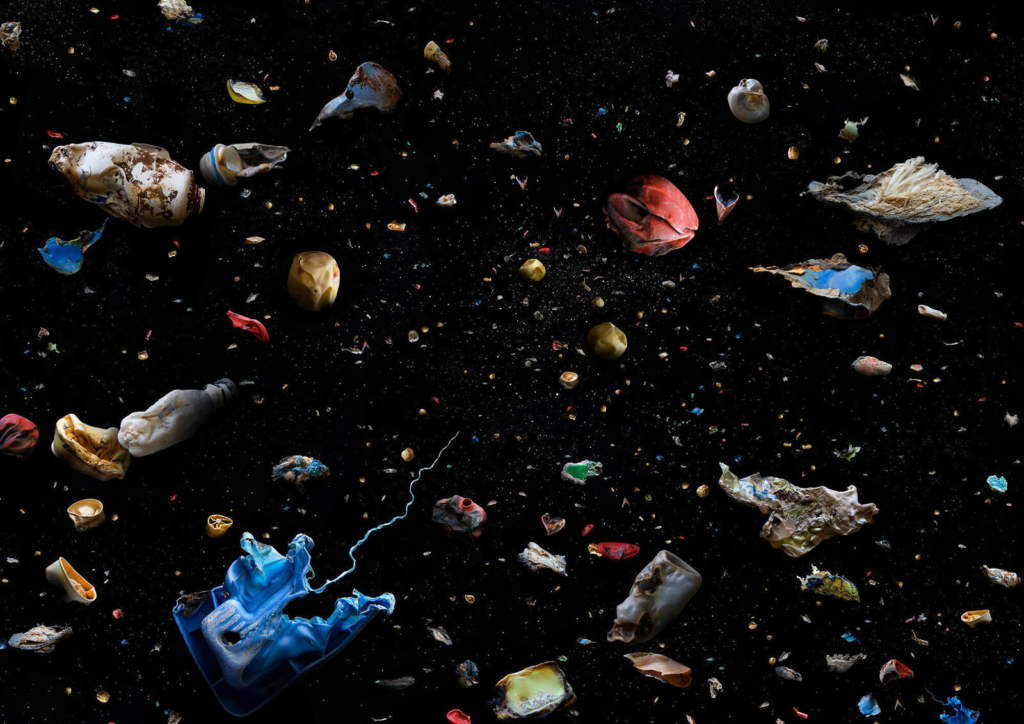Mandy Barker is a British photographer whose marine plastic debris work has received global recognition. She has worked with scientists and aims to raise awareness about plastic pollution in the oceans, showing the harmful affect on marine life, climate change and even humans – influencing the viewers to take action and make change.

She grew up collecting shells and driftwood on the beach and now she collects plastic. Working alongside scientists and researchers, she transforms data on ocean plastics into collages of pollution. By pairing aesthetically pleasing images with the ugly facts they represent, Barker hopes to encourage public outcry and change.
“Cleanups are brilliant to remove the plastic that’s there,” she says, “but we shouldn’t be needing to clean up. We should be stopping it from actually entering the ocean. That’s the most important thing.”
Her work interests me as I like the way she combats the plastic waste issue in an artistic way to make it appeal to a wider audience helping her share the message.
Her SOUP series is made from “plastic soup”—the debris floating in water, which constitutes 30% of the total plastic pollution that enters our oceans. (The other 70% sinks.)

This image is powerful as the black background contrasts the vibrant, garish colours of the plastic displaying the sheer amount of waste she collected. It is formatted in a way that, without further inspection, could be seen as just an artistic image however when you take a closer look it is revealed that it is in fact a demonstration of the issue of single use plastic and its effects on our environment. This therefore relates to the Anthropocene topic as she is combatting this issue and aiming to educate on the negative effects this man-made waste is having on our planet and ecosystems. The use of smaller pieces as well as larger ones gives the affect of distance representing the quantity and scale of this issue also almost giving the look of space and shows the correlation to the size of the universe with the scale of the issue.
